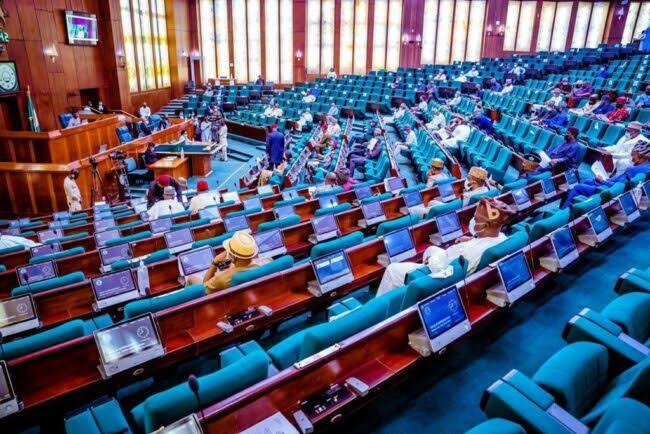the House of Representatives Committee on Basic Education and Examination Bodies took a firm stand against the West African Examinations Council (WAEC), rejecting a delegation led by Senior Assistant Registrar Ambrose Okelezo and issuing a stern ultimatum for the Head of WAEC’s National Office to appear in person. The committee’s resolute action stems from mounting concerns over widespread irregularities in the ongoing 2025 Senior School Certificate Examination (SSCE), including shocking reports of students writing exams as late as midnight in some centers, often under dire conditions. This development has sparked outrage among lawmakers, parents, and education stakeholders, raising critical questions about WAEC’s operational efficiency and its handling of Nigeria’s pivotal secondary school examinations.
The committee, chaired by Hon. Oboku Oforji, expressed deep frustration with WAEC’s failure to adequately address the reported disruptions, which have left students, parents, and educators reeling. The controversy erupted after WAEC ignored an earlier summons to appear before the committee, prompting a 24-hour ultimatum issued on May 29 for the Head of the National Office to explain the irregularities. When WAEC sent a delegation led by Okelezo instead, lawmakers swiftly rejected the move, insisting that only the top official could provide the accountability they demanded. “We will not tolerate this level of disregard,” Oforji declared, emphasizing that the committee would not engage with subordinates on a matter of such national importance.
At the heart of the issue are distressing accounts of logistical failures that have marred the 2025 SSCE. Reports from examination centers, particularly in Jalingo, Taraba State, paint a grim picture: students forced to write critical exams like English Language as late as midnight, often in near-darkness, relying on torchlights to read question papers. These delays, attributed to late delivery of exam materials, have been compounded by what WAEC claims are stringent anti-malpractice measures. However, lawmakers argue that these measures should not come at the expense of students’ well-being or the integrity of the examination process. “It is unacceptable that students are subjected to such conditions,” Oforji stated, extending a heartfelt apology to parents for what he described as “unpalatable and embarrassing incidents.”
The committee’s probe revealed that the delays were not isolated to Jalingo. Across multiple centers, exam materials reportedly arrived hours late, forcing students to endure prolonged waiting periods under stressful conditions. In some cases, the lack of electricity at examination venues exacerbated the situation, leaving candidates to navigate their papers in dim lighting. These disruptions have raised serious concerns about fairness, as students’ performance could be compromised by fatigue and inadequate conditions. Lawmakers questioned why WAEC, an institution with decades of experience administering high-stakes examinations across West Africa, failed to anticipate and mitigate these logistical challenges.
WAEC, in its defense, acknowledged the difficulties but attributed them to a combination of logistical bottlenecks and heightened security protocols designed to curb examination malpractice. The Senior Assistant Registrar, speaking on behalf of the council, explained that the delayed distribution of materials was a deliberate measure to prevent question paper leaks, a persistent issue in past examinations. Additionally, WAEC cited security challenges in certain regions as a contributing factor, though specifics were not provided. The Head of the National Office, unable to attend the hearing due to ongoing supervision of the SSCE, requested to appear before the committee on Monday, a plea that lawmakers met with skepticism. Oforji warned that failure to comply with the committee’s directive would result in constitutional action, signaling that the House was prepared to escalate the matter if necessary.
The midnight exam saga has ignited a broader conversation about the state of Nigeria’s education system and the pressures faced by students preparing for life-altering examinations. The SSCE, a gateway to tertiary education and future opportunities, is a high-stakes endeavor for millions of Nigerian students annually. Any disruption, particularly one as severe as students writing exams in the dead of night, undermines public confidence in WAEC’s ability to deliver a fair and credible process. Parents and advocacy groups have voiced their dismay, with some calling for a comprehensive overhaul of WAEC’s operations to prevent future occurrences.
Lawmakers also raised concerns about the psychological toll on students, who are already under immense pressure to perform. “Imagine a student waiting all day, only to write an exam like English Language at midnight, using a torchlight,” said one committee member. “This is not just a logistical failure; it’s a disservice to our children.” The committee’s insistence on engaging directly with the Head of WAEC’s National Office underscores their determination to hold the council accountable and ensure that corrective measures are implemented swiftly.
As the nation awaits WAEC’s response, the committee’s actions have been met with both applause and scrutiny. Some commend the lawmakers for their uncompromising stance, viewing it as a necessary push for accountability in a critical sector. Others, however, question whether the focus on summoning WAEC’s top official detracts from addressing the immediate needs of affected students, such as potential remedies for those who wrote exams under suboptimal conditions. There have been calls for WAEC to provide clarity on whether affected candidates will receive any form of redress, such as special consideration in grading or rescheduling of affected papers.
The unfolding drama also highlights the broader challenges facing Nigeria’s education system, from underfunded infrastructure to logistical inefficiencies that disproportionately affect students in remote or underserved areas. The reliance on torchlights in Jalingo, for instance, underscores the persistent issue of unreliable electricity in many parts of the country, a problem that extends beyond examination halls to classrooms and homes. Stakeholders are now urging the government to invest in modernizing examination processes, including digital solutions for material distribution, to prevent similar crises in the future.
As the Monday deadline approaches, all eyes are on WAEC’s Head of National Office and the committee’s next steps. Will WAEC provide satisfactory answers to appease the lawmakers, or will the situation escalate further? For now, the nation watches closely, hoping for resolution and, above all, a commitment to ensuring that Nigeria’s students are not left in the dark—literally or figuratively—when it comes to their education.
Join our Whatsapp channel to stay updated always!


